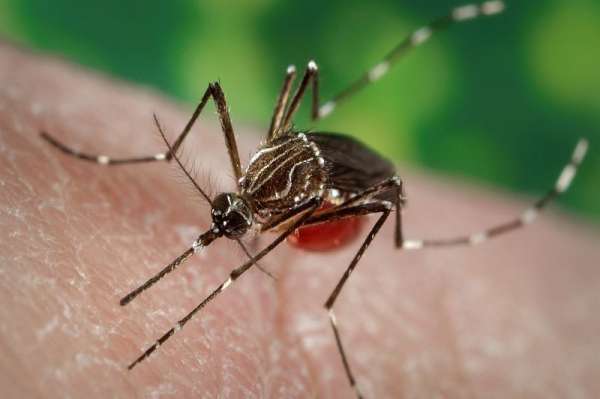
The Centers for Disease Control and Prevention issued a health advisory Tuesday, warning of increased dengue fever risk in the United States as cases of the mosquito-borne virus hit record numbers in hotter, humid regions around the world. Photo courtesy of the CDC
The Centers for Disease Control and Prevention issued a health advisory Tuesday, warning of increased dengue fever risk in the United States as cases of the mosquito-borne virus hit record numbers in hotter and more humid regions around the world.
The CDC warned doctors and other healthcare providers to be on the lookout for an “increased risk of dengue virus infections in the United States in 2024.”
Dengue fever, which is spread by mosquitoes in warm and humid weather, is the highest on record especially in Latin American countries where more than 9.7 million dengue cases have been reported this year. According to the CDC, that is more than double the cases in 2023.
Puerto Rico has been declared a public health emergency with 1,498 cases and, for the first six months of this year, 745 cases have been identified among U.S. travelers. Other areas with higher dengue transmission associated with the United States include American Samoa, the U.S. Virgin Islands, the Federated States of Micronesia, the Republic of Marshall Islands and the Republic of Palau.
In Tuesday’s alert, the CDC advised U.S. healthcare providers to monitor patients with fevers if they have visited areas with frequent dengue transmission. The CDC is also recommending doctors order diagnostic tests for acute DENV infection and report any dengue cases to public health authorities, while promoting mosquito bite prevention measures for traveling patients.
Mosquitoes spread dengue to their larvae, which increase the spread of the virus. The symptoms of dengue fever can be mild or severe and include headaches, nausea, vomiting, rash and body pain. In more severe cases, the symptoms can progress to shock, internal bleeding and death.
While most dengue fever patients recover in a week, the disease can progress to become life-threatening and require hospitalization.
The CDC recommends anyone traveling to areas with higher rates of dengue to avoid mosquito bites by staying in air-conditioned places, using insect repellent, and wearing long sleeves and pants.

